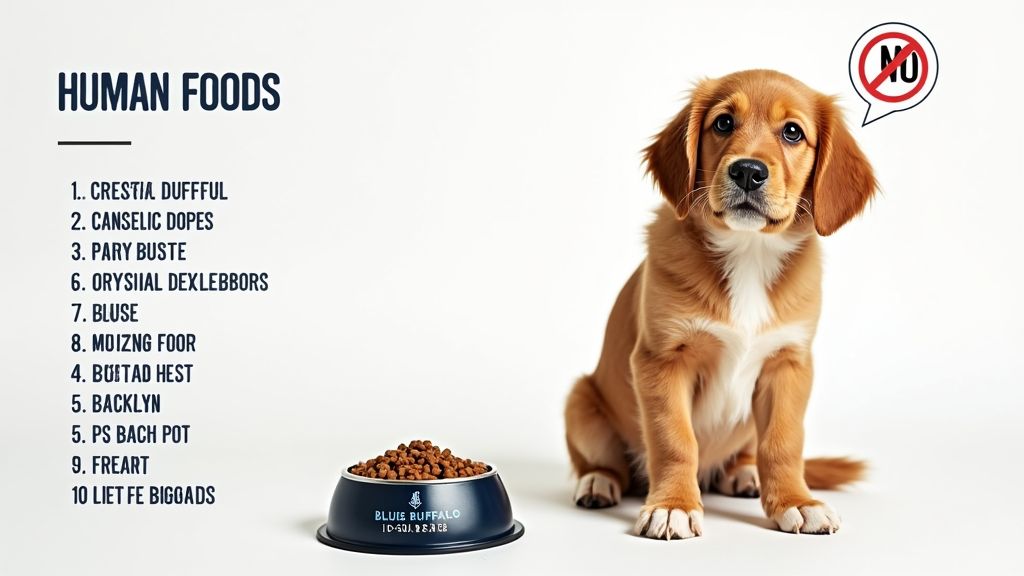As a loving pet owner, keeping your furry friend healthy and happy is a top priority. While there are many pet food brands on the market, Blue Buffalo stands out for its commitment to high-quality ingredients. However, even the best dog food can't protect your canine companion from the well-meaning but harmful habit of feeding them certain human foods. Here, we delve into the marvels of Blue Buffalo and explore the seven human foods you should never share with your dog.

Blue Buffalo: A Commitment to Quality
Blue Buffalo has earned a reputation as a pioneer in providing high-quality nutrition for pets. The brand's philosophy revolves around using real meat, fruits, and vegetables, avoiding poultry by-product meals, artificial flavors, and preservatives. This dedication ensures that your dog gets the nutrients it needs in every meal. Founded by the Bishop family after the unfortunate loss of their beloved dog Blue to cancer, the company strives to deliver pet food that promotes health and longevity.
Nutrition That Matches Wilderness Diet
Blue Buffalo offers a range of formulations, including the 'Wilderness' line, designed to match the diet of dogs' wild ancestors. This grain-free option is rich in proteins such as salmon, chicken, or duck, enabling your pet to build and maintain strong muscles. With wholesome ingredients tailored to mimic what canines would naturally consume, Blue Buffalo ensures a holistic feeding experience.
Understanding the Ingredient List
Pet nutritionists like Dr. Emily Harper advocate reading ingredient lists closely. Blue Buffalo's transparency with its ingredient sourcing is evident. The first ingredients listed are often deboned chicken or fish, complemented by easily digestible carbohydrates like sweet potatoes. The addition of antioxidant-rich fruits and vegetables helps boost immune function, making it an all-around winner for your pet's diet.
Grapes and Raisins: A Toxic Snack
To the untrained eye, grapes and raisins may seem like harmless treats, yet they hold peril for dogs. According to veterinarian Dr. Jonathan Marks, even a small amount can lead to rapid kidney failure. Monitoring your dog's access to grapes and other dried variants ensures their safety from this covert menace.
Chocolate: The Sweet Enemy
Chocolate ranks high on the list of forbidden foods for dogs. Containing the stimulant theobromine, chocolate can cause tremors, seizures, and even heart failure. Jackie, a dog owner in Seattle, recalls a scary episode when her terrier accidentally consumed a chocolate bar, urging others to be mindful of where they store their chocolate.
Onions and Garlic: Flavorful Hazard
Incorporating onions and garlic into our meals is common, but pet owners should steer clear of sharing these with their dogs. Emma, a beagle enthusiast, watched her pet develop anemia after indulging in leftover stew laden with onions. The compounds in onions and garlic can damage red blood cells, leading to concerning health issues over time.
Alcohol: Not for Canine Consumption
While it may be amusing to imagine, dogs and alcoholic beverages don't mix. Alcohol affects dogs more quickly than humans, potentially resulting in disorientation, vomiting, and, in severe cases, coma. Responsible pet owners like Steve make a point of keeping any alcoholic drinks well out of reach and cleaning up spills promptly.